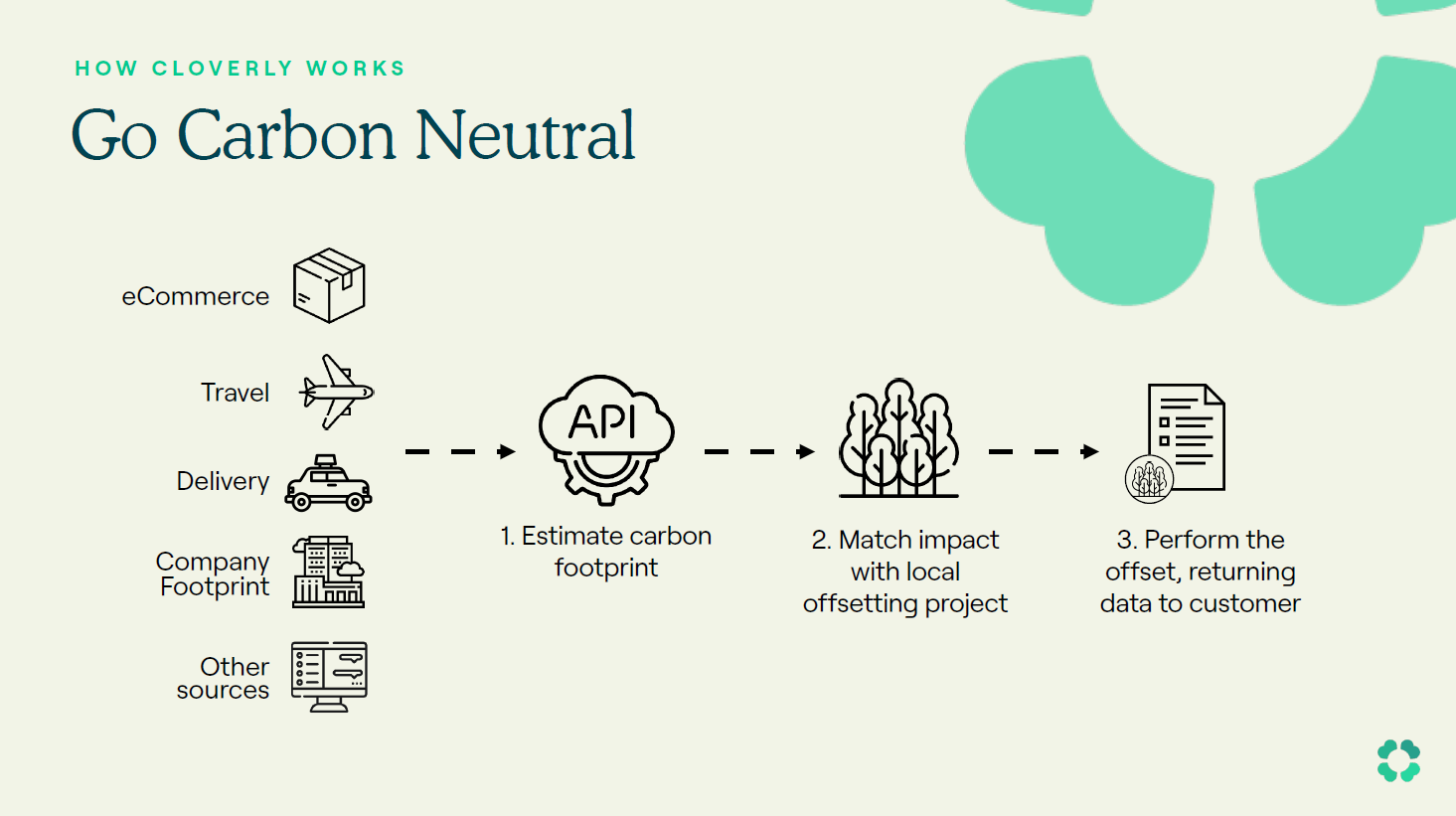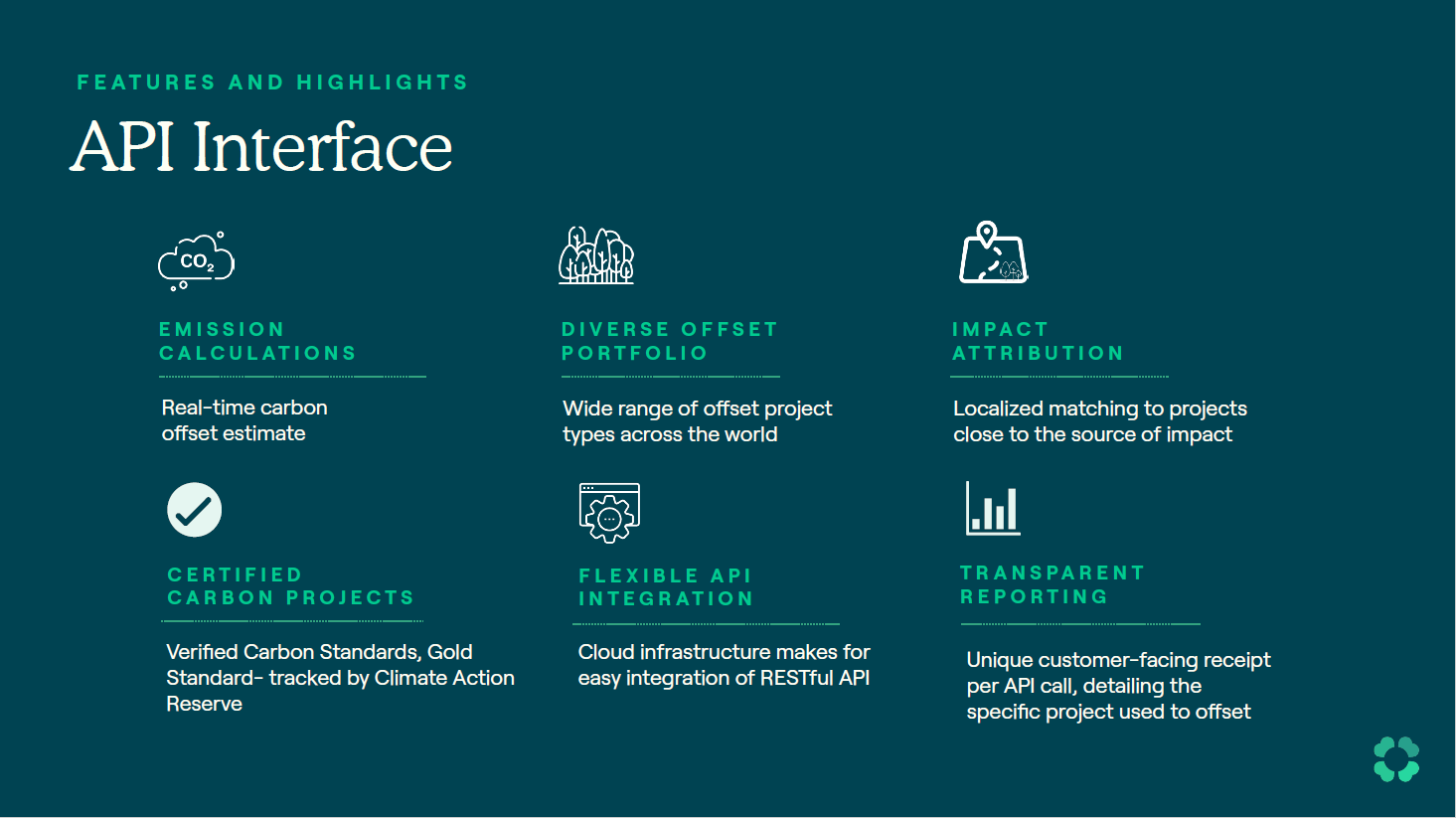Cloverly enables frictionless, automated access to carbon offsets and other carbon reduction solutions through its API and sustainability-as-a-service platform.
Technology is the backbone of digital transformation and is quickly becoming critical for sustainability transformation. Application programming interfaces, also called APIs, are a common technology that allows two or more applications to talk to each other. API platforms have transformed payments (Stripe), location (Google Maps), communication (Twilio), workflow (ServiceNow), and other verticals. API technology is now poised to make the world more sustainable by streamlining and automating digital processes that reduce environmental impact.
Cloverly aims to be a one-stop ‘Sustainability-as-a-Service’ platform that enables digital carbon reduction solutions. The company helps developers unlock sustainability and incorporate tools into a variety of digital apps and services. Cloverly’s APIs ensure these sustainability services are frictionless and on-demand for users resulting in increased consumer adoption. Cloverly currently offers one API that facilitates carbon offsets for every day transactions like e-commerce, ridesharing, travel and more.
What are carbon offsets? Carbon offsets are a way to neutralize the carbon footprint from certain activities by investing in solutions that remove carbon from the air. For example, for every 10,000 miles you fly, you can spend an extra $20 to offset the 4,175 pounds of CO2 you generated1. Offsets are one path to reducing our enormous carbon footprints. In fact, the US has one of the largest carbon footprints in the world. The average carbon footprint of a person in the US is 16 tons, about 4x higher than the global average2. Individuals and businesses alike need to make a concerted effort to reduce greenhouse gas emissions.

Cloverly works with various brands to facilitate seamless carbon offsets. The company’s customers embed Cloverly’s API in their websites, apps and other digital tools to streamline carbon offsets at the point of purchase. As a consumer makes a purchase, Cloverly estimates the carbon footprint of the activity or service, matches the purchase to a local offsetting project, and then returns the offset data and amount to the consumer. The offset can be embedded in the checkout experience alongside more specific information about the offset project to encourage consumer participation. Cloverly addresses use cases across e-commerce, travel, delivery, company footprints, and more.
Cloverly partners with certified carbon projects and has grown a diverse and expansive portfolio over time. Project types span forestry, grassland, renewable energy, and more. Cloverly offers many options to its customers to align with specific goals or geographic location. Cloverly’s platform can also facilitate use of already purchased offsets or designate a specific project to one brand partner. Clients use a dashboard to track and report progress in real-time, enabling sustainability transparency.

Platform infrastructure, like Cloverly’s, is extendible and could encompass additional services beyond carbon offsets in the future. Cloverly is building the technology plumbing for automated digital services that makes sustainability part of everyday activities. We see API technologies as a must-have for sustainable transformation.
Learn more about Cloverly and how it is driving impact through technology by tuning into our March 2021 ‘Startups Driving Sustainability’ Showcase recording.
[1] Carbonfund.org. Air Travel Offsets. March 29, 2021
[2] The Nature Conservancy. What is a carbon footprint. March 29, 2021








Join the conversation.